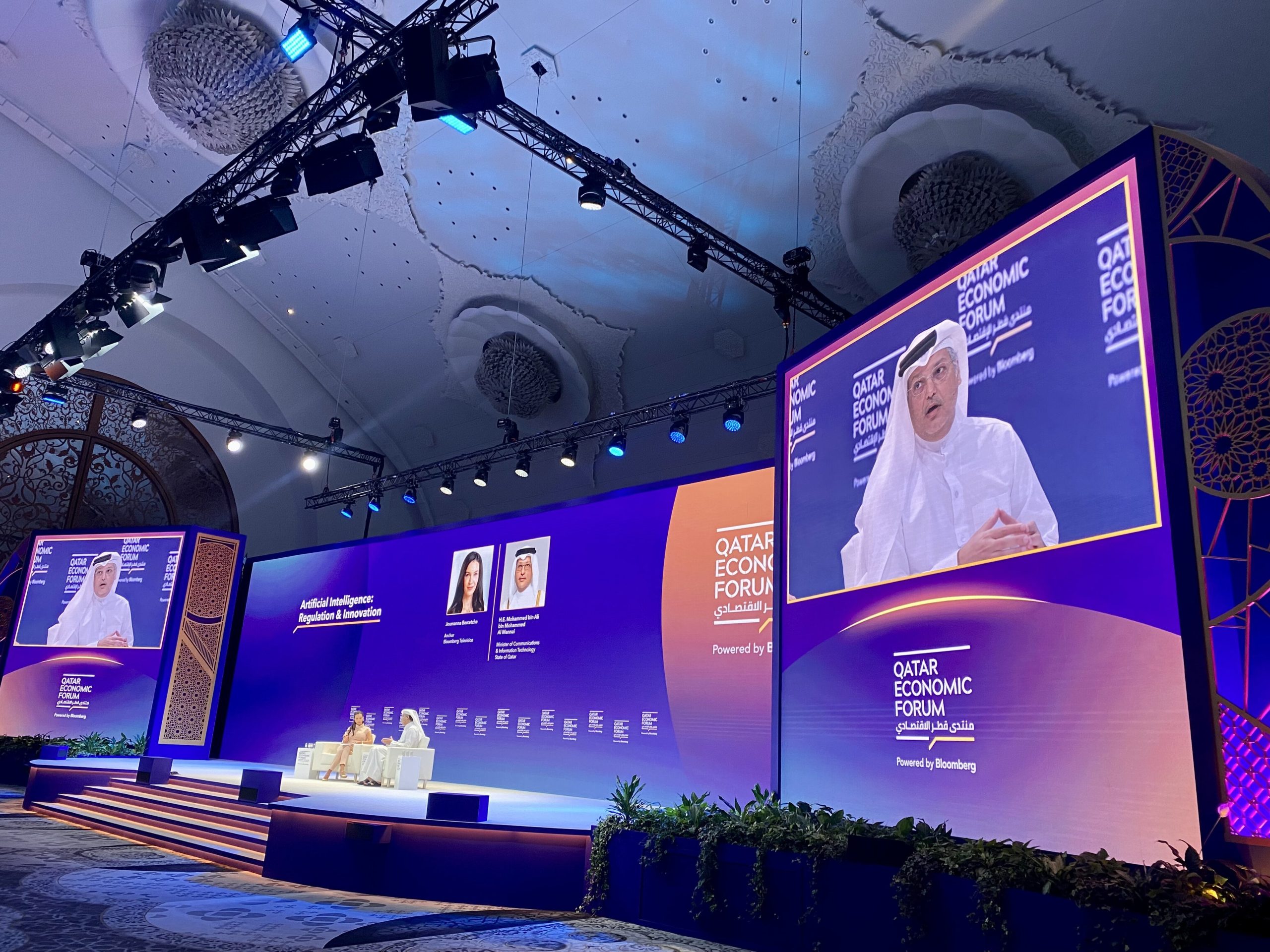The QEF kicked off in Lusail on Tuesday, where Qatar’s Prime Minister Sheikh Mohammed bin Abdulrahman Al-Thani announced the launch of the ‘Fanar’ Arabic AI project.
Qatar aims to increase its data centre capacity three times more in the next five to six years, Mohammed Al Mannai, Qatar’s minister of communications and information technology said on Thursday.
“We look forward to growing our capacity and data centre capacity in Qatar three times more in the next five-to-six years and also to attract more of the hybrid skills, more than what we have to operate from,” Al Mannai told a panel at the Qatar Economic Forum (QEF).
Titled Artificial Intelligence: Regulation & Innovation, the session at the QEF highlighted the regional endeavours in the world of Artificial Intelligence.
Al Mannai offered an optimistic view of the technological development in the region, especially given its ability to develop the needed infrastructure.
“The capability that I would see the Middle East can excel in is being able to operate the infrastructure that can support the world’s need for compute capacity, which is a big problem now,” he explained.
The QEF kicked off in Lusail on Tuesday, where Qatar’s Prime Minister Sheikh Mohammed bin Abdulrahman Al-Thani announced the launch of the ‘Fanar’ Arabic AI project.
The Qatar-led large language model (LLM) project is set to collect quality data in Arabic in a bid to enrich linguistic models and preserve the Arab identity.
The project’s launch also came under Qatar’s efforts to expand its digital transformation through increased investments in technology, innovation and AI, Sheikh Mohammed, who is also Qatar’s foreign minister, explained.
He noted that Qatar has adopted QAR 9 billion (around $2.4 billion) in incentives to achieve its endeavours.
“It will enhance the different linguistic programmes and enrich the Arab language,” Sheikh Mohammed told the QEF.
Commenting on Fanar, Al Mannai said the project would play a significant role in the AI world.
“In our region there are multiple initiatives to develop Arabic LLM, one that we hope would dominate the centre stage is Fanar,” Al Mannai said.
He also underlined the role of “data diplomacy” to ensure access to the technology given the need for data availability.
“I think one of the important pillars that we talked about in the strategy is data, as I always give an example of AI as the restaurant and data as the kitchen. No one would like to go and see the kitchen, and everyone would like to go and eat the food. But the real challenge actually is making sure that the amount of data available,” he explained.







